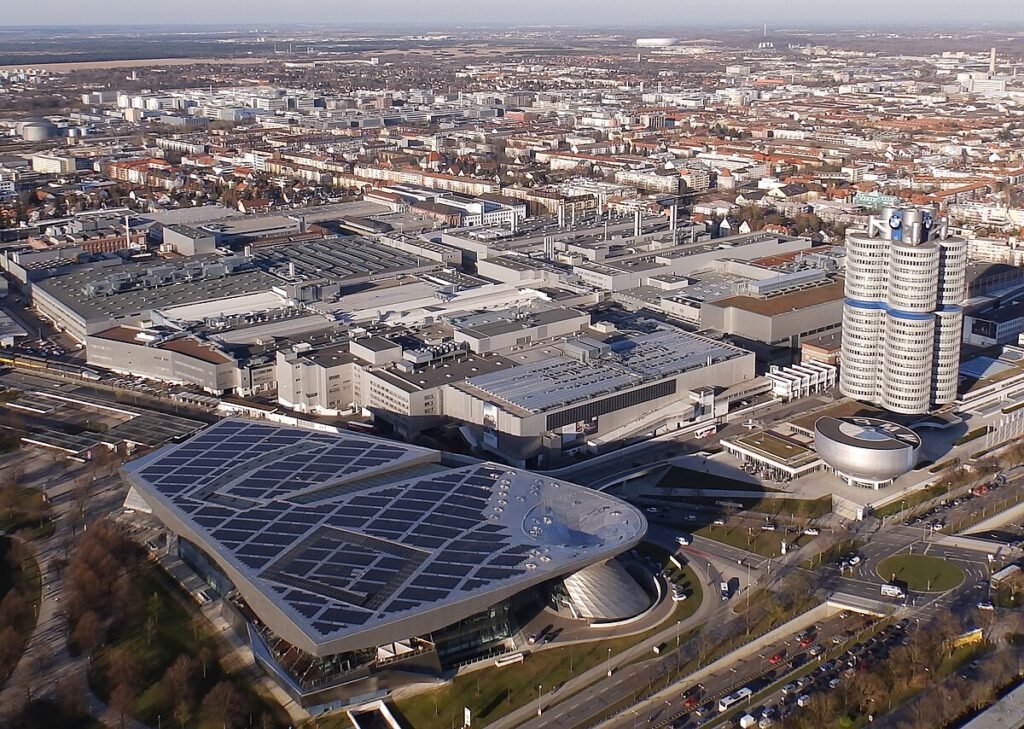BMW Group has placed a temporary hold on its ambitious £600m investment in the Mini factory outside Oxford because of declining consumer demand for electric cars. The German carmaker, which acquired Mini in 2000, first announced the upgrade in 2023, to convert the Cowley plant into an electric Mini production center. The investment, supported by government funding, was set to underpin 4,000 jobs in the electric vehicle industry.
But due to changing industry trends and volatility in the auto industry, BMW has chosen to reassess its intentions of manufacturing electric Minis at the facility. “Due to the several uncertainties surrounding the automotive industry, the BMW Group is reassessing the timing of resuming battery-electric Mini production in Oxford,” the company said.

In spite of this hiatus, BMW is sticking to the Oxford plant, which has been the bulwark of Mini production over the years. The company stated that “Plant Oxford is at the heart of Mini production, manufacturing and exporting a range of models which are sought after in the UK and around the world.”
Work on some of the upgrade is still ongoing, with continued construction to update the plant. Among these upgrades is a state-of-the-art logistics building aimed at improving operational efficiency and readying the site for future automotive innovation.
BMW has notified the UK government about its intention to review the timeframe for investment and reaffirmed it will not receive the originally outlined grant. BMW guaranteed that deliberations over future plans are proceeding, asserting, “We continue to be in close discussion on our future intentions.”
In the meantime, the Oxford factory will still be making Mini models with conventional internal combustion engines. With 4,500 employees and a history dating back over a century, the plant is still an important production base. But the halt in investment has created doubts about its long-term future, especially as BMW will now have to deal with import tariffs for longer than originally anticipated.
When BMW originally announced its £600m investment, the intention was to start production of the electric Mini Cooper and the electric Mini Aceman crossover SUV in 2026. This was a major reversal of an initial strategy to shift production to cheaper factories in China. That move was subsequently reversed after talks with the UK government, spearheaded by then-Prime Minister Rishi Sunak, involving a £60m taxpayer subsidy.
The new government measures on electric car uptake have imposed yet another complexity for motor vehicle manufacturers. The present Labour administration has promised to revive the move by former Prime Minister Boris Johnson to ban new petrol and diesel car sales by 2030. Carmakers have been allocated tough targets for electric car sales, with fines of up to £15,000 per vehicle for not reaching the targets.
In 2025, the government has directed that 28% of total new car purchases in the UK should be electric, which in 2024 is 22%. The targets will grow by one percentage point every year, adding to pressure on producers to speed up EV transition.
But consumer demand for electric cars has not caught up with these regulatory reforms. Prospective buyers have been held back by fears of a lack of charging points and the increased cost of replacing petrol and diesel-powered models.
One Department for Transport representative confirmed these realities, saying, “We know the worldwide problems car manufacturers encounter and have responded to their call by consulting about reinstating the 2030 EV deadline and safeguarding employment – a proposal welcomed by most manufacturers who’ve been planning this date, and are ahead of schedule on fulfilling their ZEV mandate commitments.”.
“We’re investing over £2.3 billion to support industry and consumers make the switch, tapping into a multibillion-pound industry that will create high-paid jobs for decades to come, make the UK a clean energy superpower and help deliver our Plan for Change.”
As BMW re-strategizes, the fate of the Oxford Mini factory hangs in the balance. Although the firm has reaffirmed its intention to convert the plant to electric-only manufacturing by 2030, the temporary stoppage calls into question the likelihood of achieving the same within the projected timeframe. The changing market conditions and moving consumer tastes will determine the course of action for both BMW as well as the rest of the UK automotive sector.








